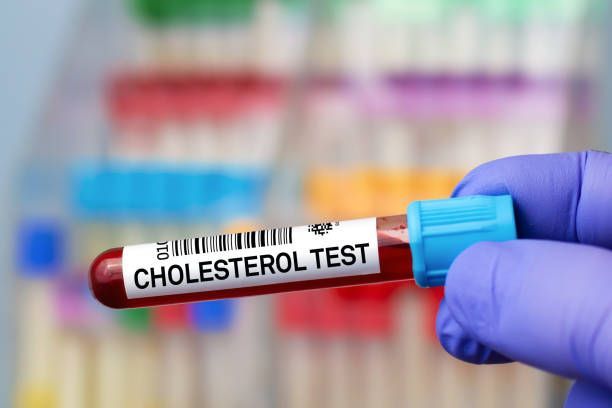Healthy Eating Tips to Boost Your Nutrition for National Nutrition Month
March is National Nutrition Month! It’s the best time to focus on healthy eating and proper nutrition. This month can help recall the importance of making informed food choices and developing intentional eating and healthy habits.
Whether you want to overhaul your diet completely or simply incorporate more nutritious foods into your daily meals, this blog will provide valuable tips and insights. From understanding the basics of a balanced diet to discovering new and delicious ways to enjoy healthy foods, join us in celebrating National Nutrition Month by developing stronger health strategies through nutrition. This way, you can stay out of the urgent care clinic.
The Basics of Nutrition
Knowing the basics of nutrition can help you develop a balanced diet that supports your body’s needs. Nutrition encompasses the macronutrients—proteins, carbohydrates, and fats—that provide energy and essential micronutrients like vitamins and minerals necessary for the body to function optimally. To eat a “healthy diet,” consume various foods that contain the nutrients above to promote your body’s health and wellness.
This means incorporating a mix of fruits, vegetables, whole grains, lean proteins, and healthy fats into your daily meals. Focusing on nutrient-dense foods can fuel your body effectively, support your immune system, maintain a healthy weight, and reduce the risk of chronic diseases. The healthier you eat, the more you can avoid visiting a 24 hour urgent care clinic.
Healthy Eating Tips
Healthy eating is about making informed choices that enhance your well-being. Incorporate a variety of whole foods, stay hydrated, and plan meals ahead to ensure a balanced intake of nutrients. Listen to your body's signals and enjoy treats in moderation. These simple tips can lead to lasting, positive changes in your diet.
1. Enjoy Whole Foods
One of the most effective steps towards healthier eating is prioritizing whole foods. These foods are as close to their natural state as possible, minimally processed, and free from added sugars, unhealthy fats, and artificial ingredients. Fill your plate with colorful fruits and vegetables, whole grains like quinoa and brown rice, lean proteins such as fish, poultry, beans, and nuts, and healthy fats from avocados, olive oil, and seeds. Whole foods provide a symphony of nutrients essential for optimal health, including fiber, vitamins, minerals, and antioxidants.
2. Plan Your Meals
Meal planning is a powerful tool in maintaining a healthy diet. It helps you control your ingredients, manage portion sizes, and avoid the temptation of fast food or processed snacks. Start by planning a week’s worth of meals, including snacks. Prepare as much as you can in advance to save time and reduce stress during the week. Meal planning ensures that you have nutritious options readily available, helping you stay on track with your health goals.
3. Stay Hydrated
Hydration supports digestion, absorption, circulation, and even skin health. Aim to drink at least 8 glasses of water daily, or more if you're active or live in a hot climate. You can also increase your water intake through water-rich foods like cucumbers, tomatoes, and watermelon. Limit sugary drinks and high-caffeine beverages, as they can lead to dehydration.
4. Listen to Your Body
Mindful eating involves listening to your body’s hunger and fullness cues. Eating slowly and without distraction allows you to enjoy your food more and recognize when you’re full, preventing overeating. This practice encourages a healthier relationship with food, focusing on nourishment rather than eating for emotional reasons or out of boredom.
5. Moderation in Mind
Healthy eating doesn’t mean you have to eliminate your favorite treats. Allowing yourself occasional indulgences can help you maintain a healthy diet without feeling deprived. The key is to enjoy these foods in small quantities and not make them a regular part of your diet. So, you can still enjoy that chocolate milkshake - once in a while!
By incorporating these healthy eating tips into your lifestyle, you can improve your nutrition, boost your health, and enjoy the benefits of a well-balanced diet.
Debunking Common Nutrition Myths
Everywhere you look, especially across social media, you can find dozens, if not hundreds, of nutrition myths. They cloud the truth about healthy eating and can be confusing when trying to eat healthy. Debunking these myths is essential in making informed dietary choices and fostering a healthier lifestyle.
Myth 1: Carbohydrates are the Enemy
Carbohydrates are often talked about in a negative light. However, the reality is that quality matters more than quantity. Whole, unprocessed carbs like fruits, vegetables, and whole grains are vital for energy, digestion, and nutrient intake. The refined carbs and sugars are worth reducing - not the beneficial complex carbohydrates.
Myth 2: Fat Makes You Fat
Not all fats are created equal. While it's true that trans fats and some saturated fats can contribute to health issues, healthy fats such as those found in avocados, nuts, seeds, and olive oil are essential for brain health, vitamin absorption, and satiety. Including these in moderation can actually support weight management and overall health.
Myth 3: Dietary Supplements Can Replace a Poor Diet
Supplements are designed to fill in nutritional gaps and provide nutritional support, not replace whole foods. Relying solely on supplements can lead to a lack of essential nutrients that are best absorbed through food. A well-rounded diet is the best strategy for nutritional wellness.
Practical Ways to Incorporate Healthy Eating
Incorporating healthy eating into your daily life doesn't have to be a daunting task. Start with simple, practical steps to make a significant impact. First, prioritize whole foods—fruits, vegetables, whole grains, lean proteins, and healthy fats—to ensure a nutrient-rich diet. Plan your meals and snacks ahead of time to avoid impulsive choices that may be less healthy. Experiment with herbs and spices instead of salt to enhance flavors without adding extra sodium when cooking.
When dining out, don't shy away from customizing orders. You can request dishes to be cooked in less oil or ask for dressings and sauces on the side. Lastly, practice mindful eating by paying attention to your food and enjoying each bite. These straightforward strategies can lead to a healthier lifestyle without feeling overwhelmed.
Finding Support In Your Health and Wellness Journey
Healthy eating is bigger than just National Nutrition Month - it’s a lifelong journey. By understanding the basics of nutrition and adopting practical healthy habits, you can set the foundation for your health. Small, consistent changes can lead to significant health benefits over time.
Keep UrgiClinic Urgent Care services in your toolbox for support in your path toward wellness. Your health is your priority, and we’re here to care for you. Contact us today to see how we can help.













